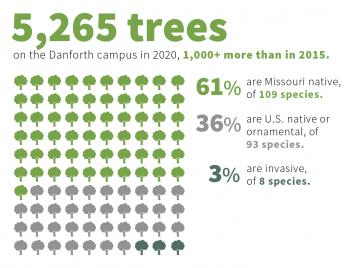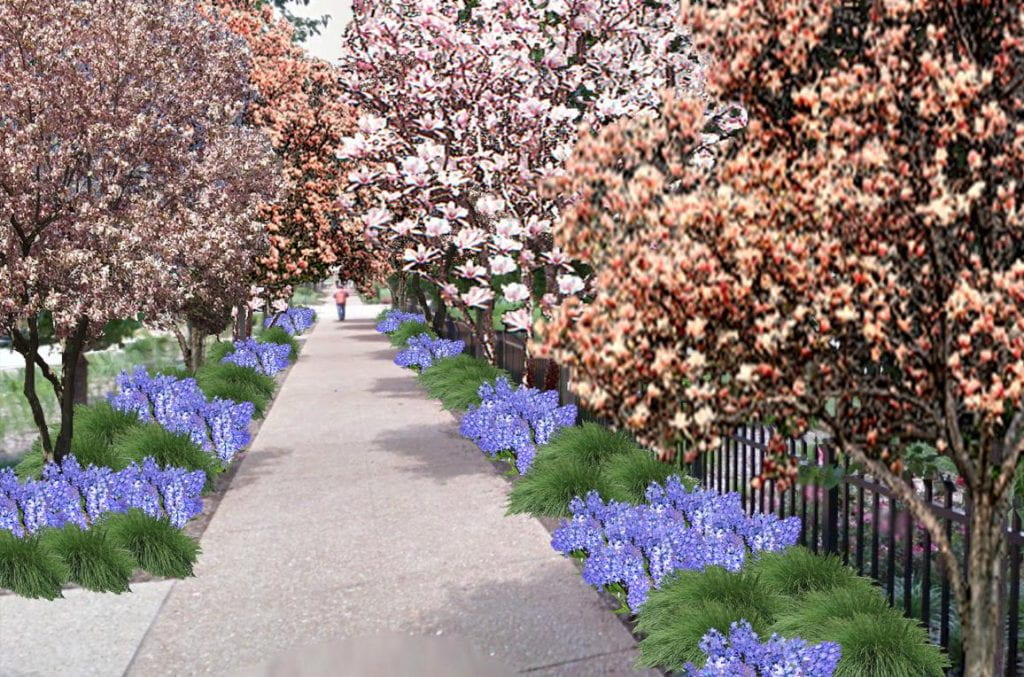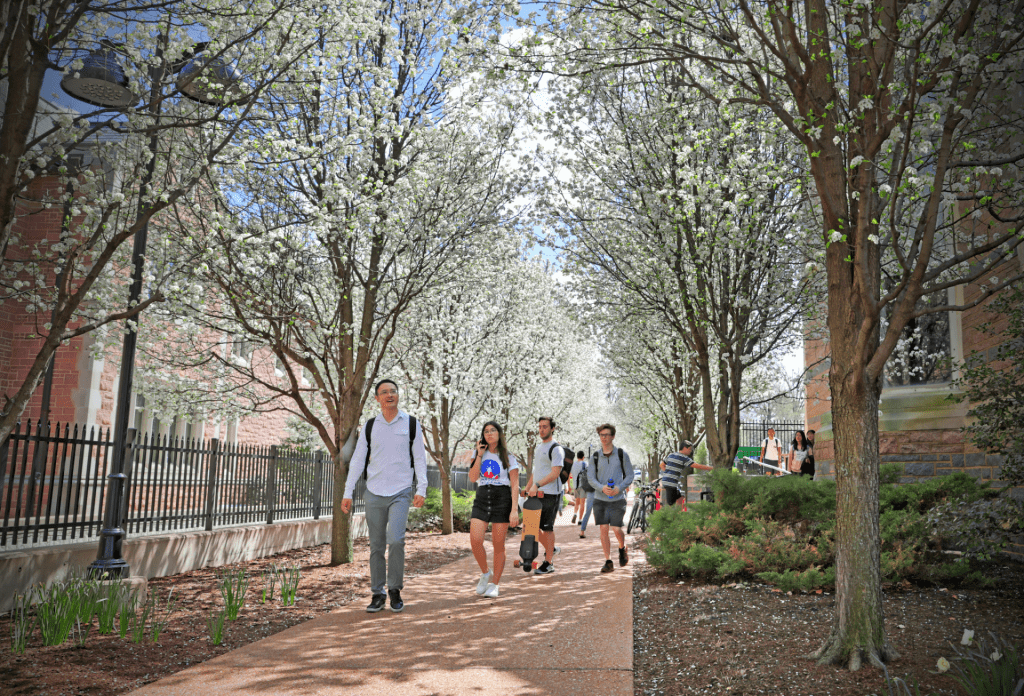If you have been exploring the flowering trees coming to life across campus, delighting in the rich smells, colors and textures, you may have noticed one corridor that is conspicuously absent. The path between the DUC and Simon Hall has brightened many springs with the dense white clusters of Bradford pear blossoms, lining a favorite route that visitors and the WashU community frequent. This past November, when the campus was all but empty, the Bradford pears came down.
Why, you might wonder? And what is next?
Invasive Species Removal
In the 2015 Strategic Plan for Sustainable Operations, WashU committed to actively eliminate invasive species from the campus, both proactively targeting areas with abundant invasives, replacing them when renovating existing landscapes, and also by strictly avoiding planting them in new installations (despite status as an invasive plant species, many nurseries still carry popular varieties, so it’s important to be on the lookout!). Among trees specifically, 3% of the 5,265 campus trees are invasive, representing 8 different species.

Bradford Pears (also known as Callery Pear, Pyrus calleryana) originated in China and was introduced by the Department of Agriculture in the 1960s. This tree species was originally thought to be an ideal ornamental tree for American landscapes, with its showy spring flowers and symmetrical growth pattern. It was also assumed to be sterile, which has proven to be quite the opposite. The flowering tree is now known as one of the most detrimental plants in the American landscape.
Bradford pears only last about 15-20 years, and their weak branch structure results in significant breakage throughout their lifespan, especially after snow, wind and rain events. They cross-pollinate with other trees and quickly spread in even the poorest conditions. They also harbor diseases like fire blight that can be transmitted to neighboring trees, including other ornamental pears, apple, crabapple, quince and hawthorn trees. Like other invasives, they aggressively displace native plants and animal species by crowding out other trees and competing for resources. Furthermore, because they have not evolved with native plants, insects, and animals, they offer few ecological benefits.
What will replace the Bradford pears?

Cody Azotea, account manager for Focal Pointe, the contractor that stewards the university’s grounds, designed a showy corridor planting that will carry on the tradition of a flowering allee, but with non-invasive plants. Magnolias, the tree variety selected as the replacement, will outperform the Bradford pears on many levels. For visual interest and variety, a collection of magnolia hybrids will showcase a full range of color, with varying shades of pink. The magnolias will be under planted with a variety of different native sedges which will create unique groupings of texture in varying shades of green. For some added spring color, a collection of grape hyacinth bulbs will be planted among the sedges. The proposal has beautiful simplicity – just three main plant types, but will still showcase extensive variety between them.
When asked about what excites him the most about the planned installation, Chris Anderson, Grounds Manager for the WashU Facilities Department, replied:
“Not only have we gotten rid of an invasive tree species in this area, but to have a unique collection of hybrid Magnolias is just amazing. Three or four years down the road, this special allee will be an amazing entrance to inner campus, and a very welcomed addition to our Arboretum.”
Chris Anderson, Grounds Manager, WashU
Chris also manages the WashU Arboretum, a collection of over 100 unique tree species across campus that are labeled with QR codes that link to more information about the tree. The trees are connected to offer a self-guided tree tour.
The landscape installation is planned for this fall, which will depend on how the trees that WashU has already selected are progressing in the nursery. It will be established and thriving within a couple of seasons. Something to look forward to with anticipation for sure!
